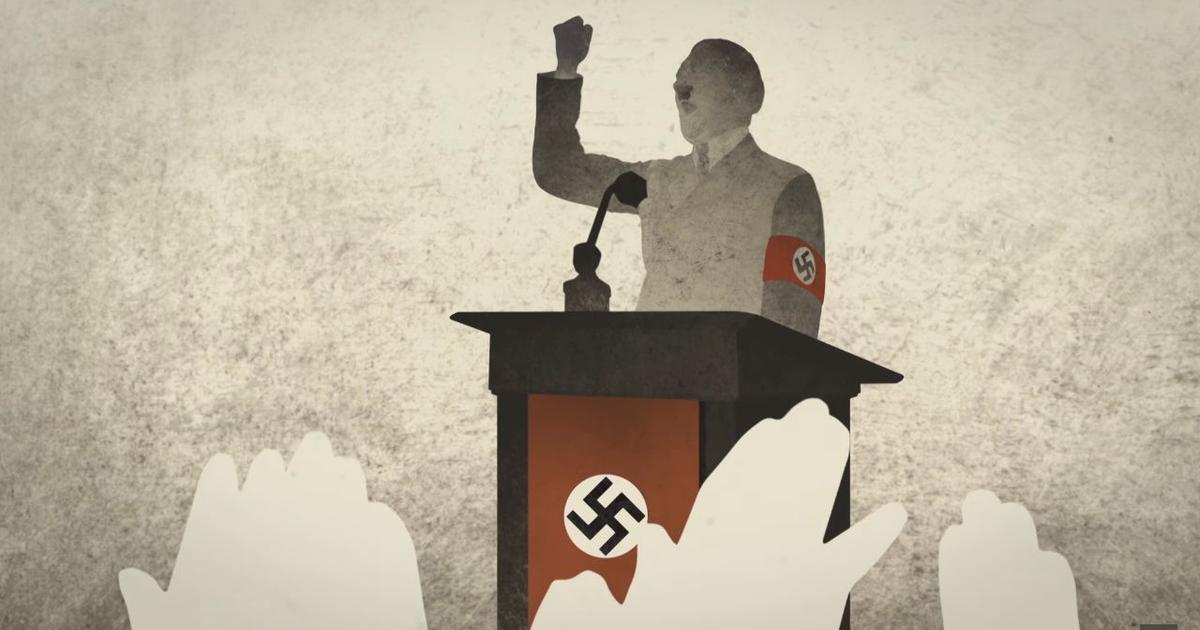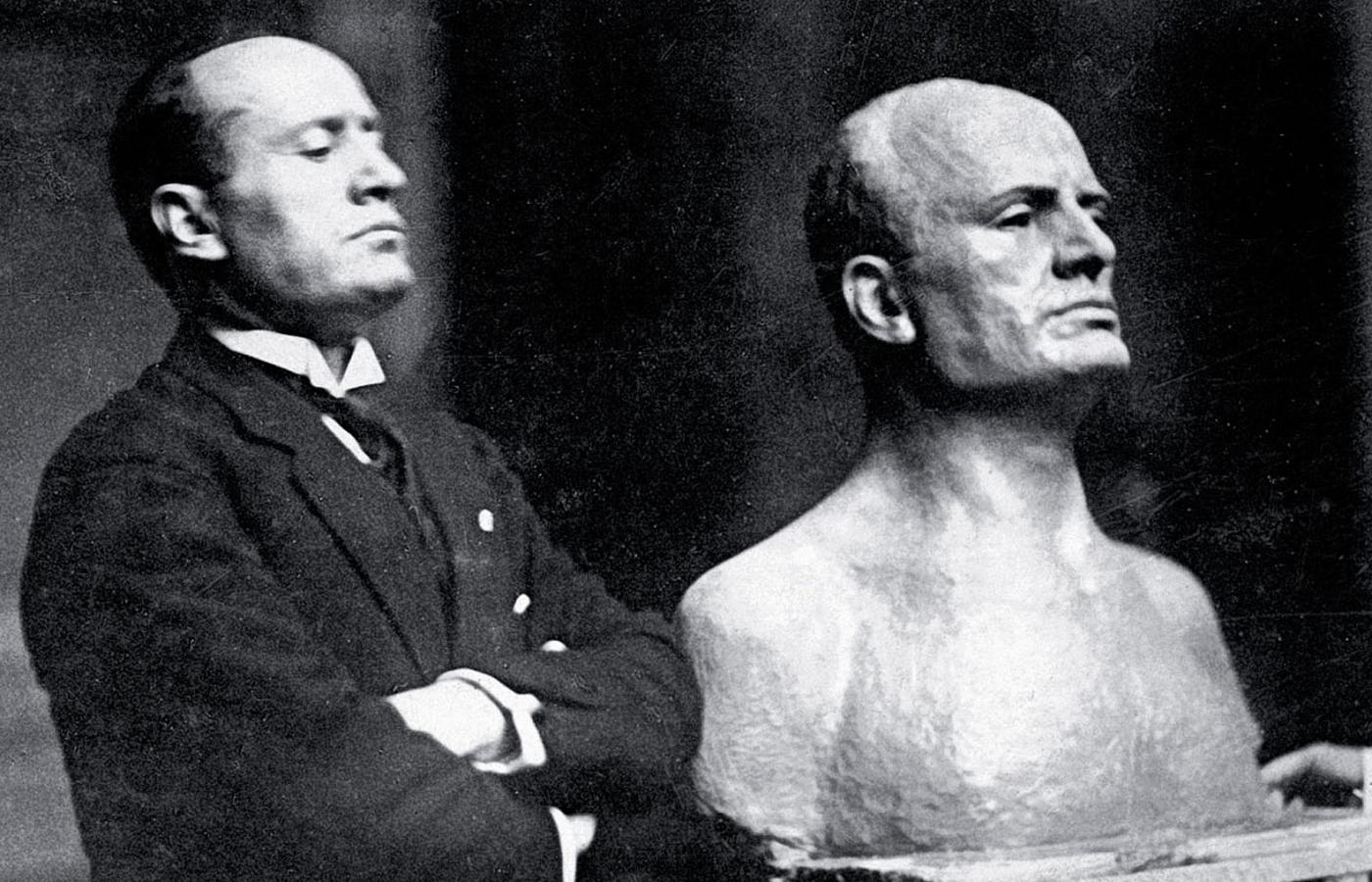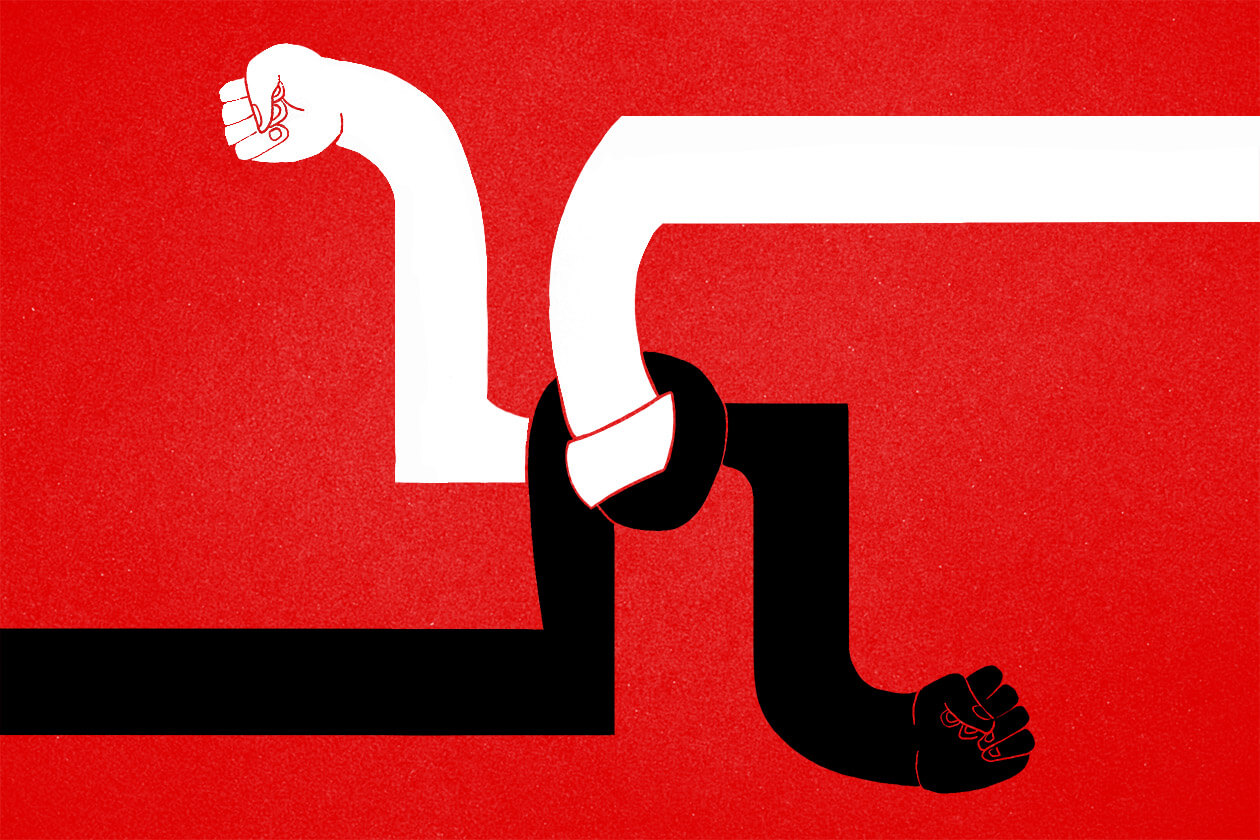By Evi Tsakali,
“Politics is a performative art, in the sense that it is a linguistic performance”, we would eventually say during our course on Totalitarian Ideologies and Dictatorships in Europe on the occasion of a presentation we had to do in pairs. However, not everything was that clear from the beginning… When first encountering our topic, “How far does political religion explain the rise of totalitarianism?”, both my partner and I exclaimed “What the far…” (hence the title, apologies in case you don’t appreciate puns as a way of doing humor, we found it funny at the moment) due to the vague and peculiar formulation, on one hand, and on the other hand because initially we both had the impression that the topic was about religion and its interplay with politics or something of that sort; but we soon found out that political religion is, in fact, a concept of its own, and actually an interesting one when studying totalitarianism…
In a nutshell…
Political religion is a prevalent notion in fascism studies, yet not as popular as the term “totalitarianism” (which seems more inclusive) in the relevant literature, probably due to its paradoxical formulation. Defined by Emilio Gentile as “a more or less developed system of beliefs, myths, rituals and symbols, which gives a sacred character to some essence of this world, making it an object of worship, worship and pious devotion”, it is relevant when the terms “dictatorship” or “totalitarianism” (as the form of government that attempts to assert total control over the lives of its citizens) do not seem to fully accommodate the full description of the phenomenon.

Essentially, one could claim that the term existed since the French Revolution, when Condorcet denounced the idea of teaching children the Constitution in order not to provoke a “blind enthusiasm”: “if we tell them: here is what you should worship and believe in, we are attempting to create a kind of political religion”. Nevertheless, the term was officially introduced to academia by Eric Voegelin in 1938, tracing the phenomenon in history as early as the time of the Egyptian pharaoh, Akhenato, and extracting an archetype whose aspect of “sacralization of the collectivity” can be seen in the case studies of Nazism and Fascism in Europe.
In both of the aforementioned cases, there are frequent appeals to God and Providence, as well as denunciation of atheism, while the two key figures (Hitler and Mussolini) were striving for the creation of a messianic image with a quasi-divine mission. In Mein Kampf, Adolf Hitler qualifies the Catholic Church as a model for his party, and some years later he would call the NSDAP’s program “the founding text of our religion”. Mussolini, likewise, with expressions including, but not limited to, “fascist religion”, “political and civilian religion”, “Italy’s religion”, thus inventing a whole linguistic corpus to which Emilio Gentile attributes the term “fascistese”.

So, “how far”?
Of course, political religion is an aspect of totalitarianism, it does not necessarily constitute a condition sine qua non for the existence of the latter, and certainly it does not encompass the content of the notion of totalitarianism in its entirety; it would be an omission not to take into consideration other factors, such as the legitimization of violence and suppression of alternative forms of loyalty, or the monopolization of Truth and moral order and the so called “cult of the leader”. Nevertheless, we cannot reject the predominant role of political religion in the rise of totalitarianism, especially analyzing it through the prism of supply and demand. Studying the rise of the extreme right through the lens of supply and demand comprises of numerous theses for each side (which I won’t develop further at this point, because I kind of don’t want to spoil my master’s thesis’ basic argumentation for the rise and fall of the Golden Dawn), the first one focusing on the state of society and social breakdown during the given period, while the latter explores the state of the political system and spectrum, and the windows of opportunity it may leave for the rise of totalitarianism.
From the demand side, we notice among the populations concerned an omnipresent insecurity which leads to a feeling of “loneliness” that especially Hannah Arendt would shift the emphasis on. To this demand comes the supply in the face of a leader who will promise to reclaim this lost self-esteem; a charismatic leader (a rather vague notion, to which -for the purposes of this article- we will attribute the definition of Max Weber “a leader characterized by a quasi-religious sense of great vision, and who attracted a body of unquestioning, affective supporters”). In this sense, the point where demand meets supply is “how far” political religion fosters the rise of totalitarianism.
PS: Saad, this one’s for you (you have co-authored it in a way).
Reference
- Burrin, Philippe. “Political Religion:The Relevance of a Concept.” History & Memory 9. no. 1–2. 321–49.
- BARRY, GEARÓID. “Political Religion: A User’s Guide”. Contemporary European History 24. no. 4. 623–38.
- Steinmetz, Willibald. Political Languages in the Age of Extremes. OUP/German Historical Institute. London. 2012.
- Courtois, Stéphane. Les Logiques Totalitaires En Europe. Editions du Rocher. Monaco. 2018.




